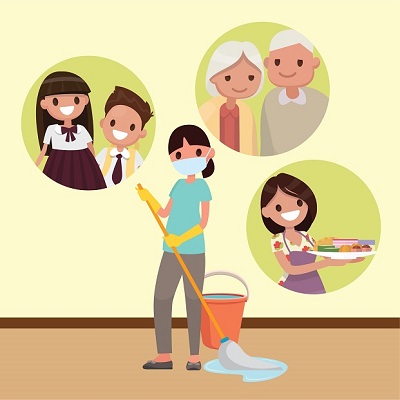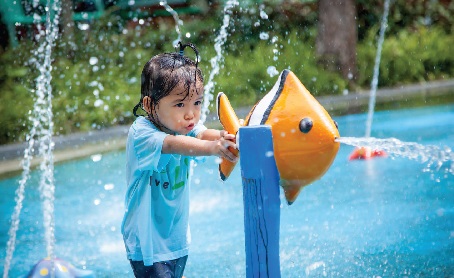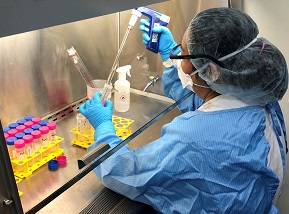As the national authority on environmental public health standards in Singapore, NEA undertakes a critical role to maintain these standards through research, ground surveillance, enforcement, licensing and outreach.
 Enhancing Environmental Sanitation Standards
Enhancing Environmental Sanitation Standards
On 5 October 2020, amendments to the Environmental Public Health Act were passed in Parliament to mandate baseline environmental sanitation standards in high-risk premises through the
environmental sanitation regime. The regime was implemented progressively from July 2021, starting with eldercare facilities, youth and social service facilities, preschools, markets and food centres, schools and coffeeshops. Under the regime, premises managers are required to appoint Environmental Control Coordinators or Environmental Control Officers to help develop and implement the environmental sanitation programme. Training sessions commenced in March 2021, during which time, the Technical Guide developed by the Environmental Sanitation Technical Committee was also finalised and published.
Keeping Dengue at Bay
In 2020, as the COVID-19 pandemic dominated the headlines, we were also hit with a fast-developing dengue outbreak, which eventually saw a historic annual high with 35,315 cases reported. Starting with a weekly number of 303 cases, the first four months saw the relative dominance of the less common dengue virus serotype 3 (DENV-3). Weekly cases rose sharply in May, shortly after the start of the Circuit Breaker period, and eventually peaked in July 2020.
NEA conducted about one million inspections for mosquito breeding island-wide – including about 7,400 checks at construction sites. In total, 14,300 enforcement actions were taken against owners of premises for mosquito breeding. About 790 summonses and 37 Stop Work Orders were issued to construction sites, and 59 contractors were charged in court for repeat offences.

We launched the annual National Dengue Prevention Campaign on 22 March 2020 to urge community stakeholders to intensify the fight against dengue. On the ground, grassroots leaders and community volunteers reached out to residents, who played their part to break the dengue transmission chain at their homes by doing frequent checks for potential mosquito breeding habitats and using insect repellent and insecticide for protection. We worked with the Inter-agency Dengue Task Force and the Town Councils to maintain a high tempo of vector control efforts throughout 2020. Apart from conducting intensified checks and sustained outreach to remove mosquito-breeding habitats, we also stepped up chemical treatment interventions.

These outreach efforts were complemented by extensive publicity on both social and traditional media, and together, have been critical in bringing down dengue transmission from August 2020. The number of cases finally went down to below 300 in the third week of November and below 200 by end December.
Project
Wolbachia showed promising results, with the release of male
Wolbachia-Aedes mosquitoes successfully suppressing the female urban
Aedes aegypti mosquito population by up to 98 per cent at existing study sites. Dengue cases were also reduced by up to 88 per cent in areas where releases had been carried out for at least one year.
 Safeguarding Against Waterborne Diseases
Safeguarding Against Waterborne Diseases
Aquatic facilities (AF) such as spa pools and water playgrounds, as well as Aerosol-generating Systems (AGS) such as cooling towers, could be sources for serious waterborne diseases if not properly maintained. AFs are popular among the public, and AGSs are commonly used as part of the large ventilation and air-conditioning systems in buildings. To safeguard hygiene standards and enhance Singapore’s preparedness in responding to potential disease outbreaks caused by AFs and AGSs, the Environmental Public Health Act was amended. Water playgrounds, interactive water fountains and spa pools, in addition to currently licensed swimming pools, now require annual licensing, while cooling towers for buildings must be registered.
Improving Funeral Service Standards
NEA enhanced funeral service standards with two sets of guidelines developed in consultation with the Association of Funeral Directors Singapore. These guidelines offer information and share industry best practices to help funeral service providers meet high public health standards, accord dignity to the deceased, and provide good service to the bereaved family members.
Released on 23 June 2020, the first set of guidelines covers the handling of the deceased in the funeral parlour, and outlines the approach to handling the deceased at every stage from collection at the place of death to the management, preparation and removal from the licensed premises.
The second set was released on 19 October 2020 and provides useful guidelines and best practices for hearse operators and on the transportation of the deceased. It outlines the roles and responsibilities of the hearse and transfer vehicle operators and drivers, in the collection and conveyance of the deceased, and the maintenance and disinfection of vehicles.
Going Forward |
In the short-term, NEA’s focus is to raise cleanliness and environmental hygiene standards at public spaces, which is vital amid the COVID-19 pandemic. Our medium-term priority is to build new capabilities, such as a national wastewater-based epidemiology and testing ecosystem, and deliver on key transformative initiatives such as Project Wolbachia. Our priority on the after-death front is to ensure adequate and timely provision of after-death facilities and services, by increasing capacity and uplifting the service quality of the funerary industry. NEA’s vision is a clean and healthy Singapore with high public health standards, which is vital for a good quality of life for residents. |
 Doubling Wastewater Testing Surveillance Sites
Doubling Wastewater Testing Surveillance Sites
To help track COVID-19 cases swiftly and stem the growth of potential clusters, NEA will be expanding the surveillance coverage of our wastewater testing programme from 200 to 400 sites by 2022. The programme, which started in February 2020, screens wastewater samples for SARS-CoV-2 virus, which could be shed by infected individuals through their stools or sputum. To process wastewater in an efficient, safe and precise way in the laboratory, NEA has jointly developed the Wastewater-Aliquoting-Valence-Engine (WAVE) platform with the Agency for Science, Technology and Research (A*STAR) and the Prime Minister's Office. NEA will continue to work with partners to enhance capacity and capabilities, and study the potential for wastewater surveillance for other infectious diseases of public health concern.
Introducing Inland Ash Scattering
NEA launched the Inland Ash Scattering Garden at Choa Chu Kang Cemetery – Garden of Peace @ CCK in May 2021, providing Singaporeans with an additional option for the management of cremated human remains in Singapore. The project was in response to public feedback and requests, and developed in consultation with religious groups, the funeral industry, interest groups and other stakeholders.
Prior to the opening of Garden of Peace @ CCK, guided tours were conducted to brief representatives from religious organisations, crematoria operators, Singapore Hospice Council, Green Burial Group, members of the Association of Funeral Directors Singapore and funeral directors.
NEA plans to also introduce inland ash scattering services at the Garden of Serenity at the upcoming new Mandai Crematorium.

Launching New After-death Facilities
The new Choa Chu Kang Cemetery Office and Mandai North Crematorium are slated to open in 2022 and 2024 respectively. The Woodlands Industrial Park E8 funeral parlour Government Land Sales site was awarded in December 2020, while construction of the new complex in Bidadari estate is expected to start in the second half of 2022.
At the same time, the Phase 3 Crypt Redevelopment Programme of Choa Chu Kang Cemetery is expected to complete in the second half of 2023, providing a total of about 29,500 burial crypts. A new consultancy tender will be out in the second half of 2022 for the planning and construction of the next five-year Phase 4 Crypt Redevelopment Programme of Choa Chu Kang Cemetery, to be progressively launched from 2023 and completed by 2027.
The claims and registration of the Choa Chu Kang Phase 8 Exhumation of Muslim graves is expected to be announced in the second half of 2021 and completed in the fourth quarter of 2025.